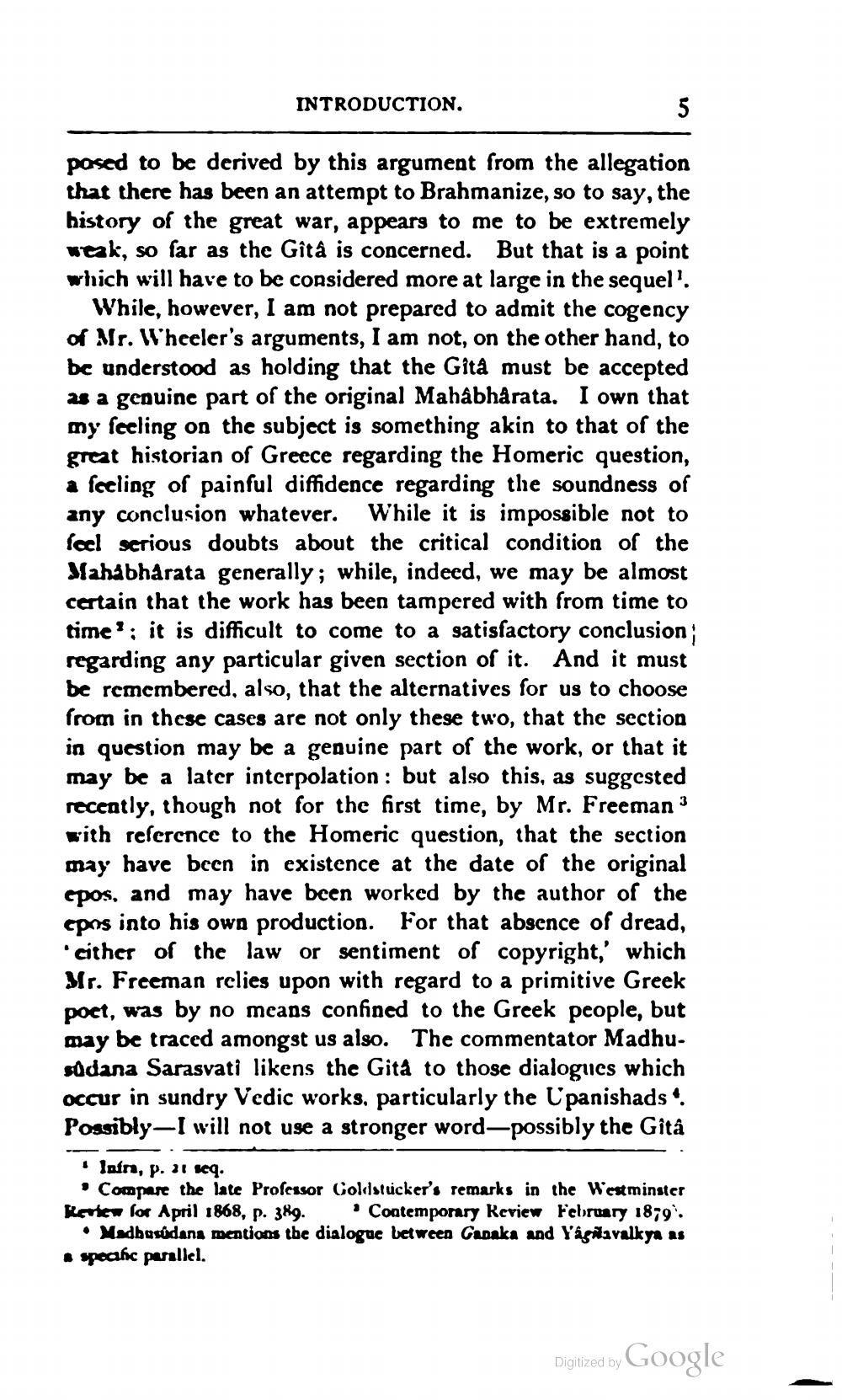________________
INTRODUCTION.
posed to be derived by this argument from the allegation that there has been an attempt to Brahmanize, so to say, the history of the great war, appears to me to be extremely weak, so far as the Gîtà is concerned. But that is a point which will have to be considered more at large in the sequel'.
While, however, I am not prepared to admit the cogency of Mr. Wheeler's arguments, I am not, on the other hand, to be understood as holding that the Gità must be accepted as a genuine part of the original Mahabharata. I own that my feeling on the subject is something akin to that of the great historian of Greece regarding the Homeric question, a feeling of painful diffidence regarding the soundness of any conclusion whatever. While it is impossible not to feel scrious doubts about the critical condition of the Mahabharata generally; while, indeed, we may be almost certain that the work has been tampered with from time to time?; it is difficult to come to a satisfactory conclusion; regarding any particular given section of it. And it must be remembered, also, that the alternatives for us to choose from in these cases are not only these two, that the section in question may be a genuine part of the work, or that it may be a later interpolation : but also this, as suggested reccatly, though not for the first time, by Mr. Freeman3 with reference to the Homeric question, that the section may have been in existence at the date of the original cpos, and may have been worked by the author of the cpns into his own production. For that absence of dread, 'cither of the law or sentiment of copyright,' which Mr. Freeman relies upon with regard to a primitive Greek poct, was by no means confined to the Greek people, but may be traced amongst us also. The commentator Madhusodana Sarasvati likens the Gita to those dialogues which occur in sundry Vedic works, particularly the Upanishads. Possibly, I will not use a stronger word-possibly the Gita
lain, p. at seq. • Compare the late Professor Goldstucker's remarks in the Westminster kerte for April 1868, p. 389. . Contemporary Review February 1879.
• Madbasüdana mentions the dialogue between Gupaka and Yagitavalkya as . spoche parallel.
Digitized by Google




